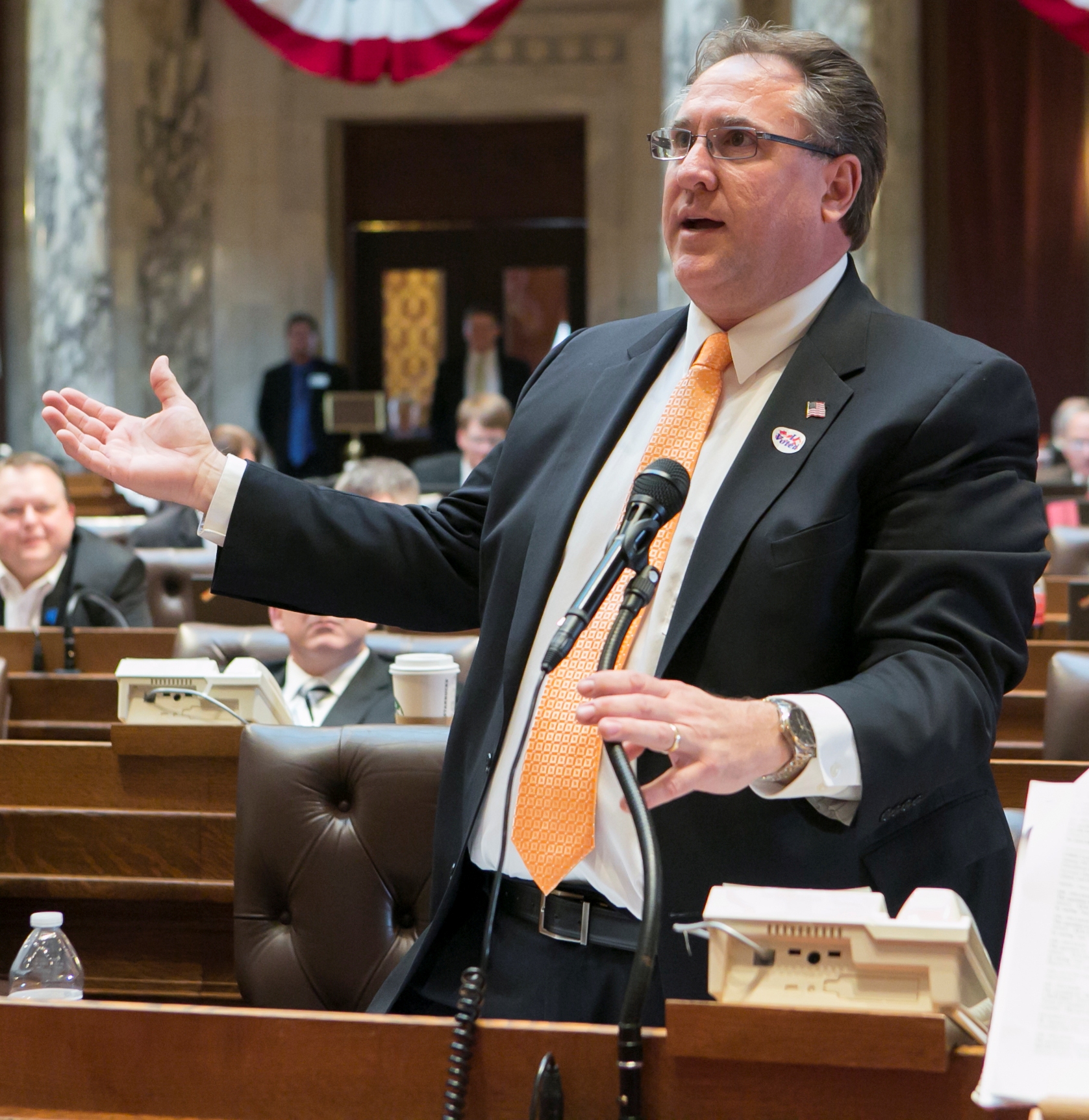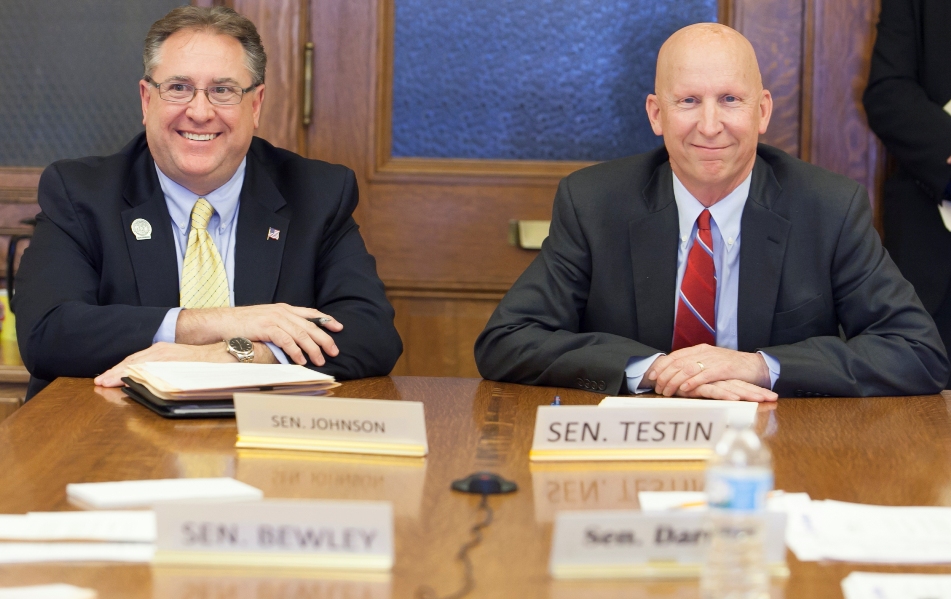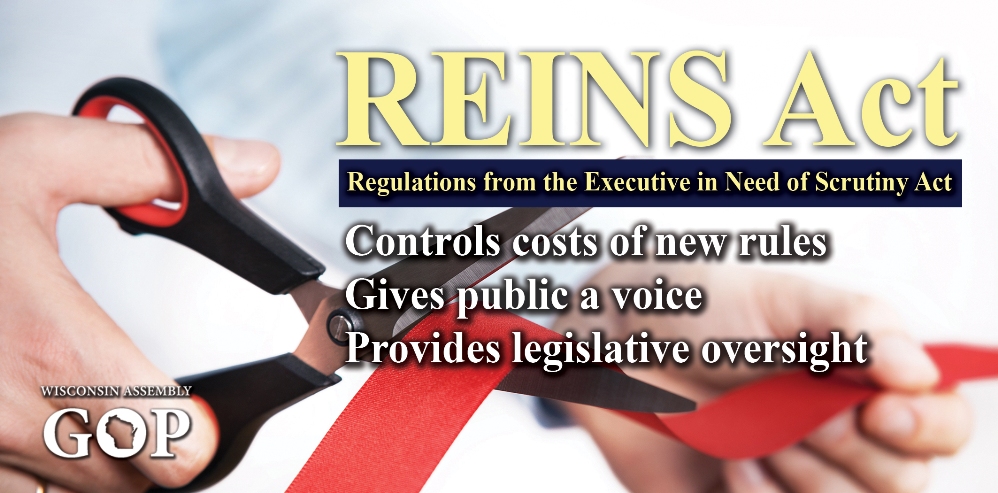
June 14, 2017
|
2018 Broadband Expansion
Grants |
|
The Broadband Expansion Grant Program provides reimbursement for equipment and construction expenses incurred to extend or improve broadband telecommunications service in underserved areas of Wisconsin. The purpose of this program is to encourage the deployment of advanced telecommunications capability in underserved areas of Wisconsin. In a recent federal report on deployment of broadband service, the Federal Communications Commission found that broadband deployment in Wisconsin was slightly below the national average: thirteen percent of the population in Wisconsin (or seven-hundred-forty-four-thousand people) lack access to at least one broadband service, compared to the national average of thirty-nine percent. There exists a disparity between the quality of broadband service available in urban areas and that same availability in many rural areas of the state. Wisconsin is expanding and devoting additional funds to programs intended to bring broadband service to some of the seven-hundred-thousand people that currently lack access to reliable internet services. To offer decent broadband service, the provider must often either upgrade or bypass existing older telephone facilities. Both of those options are expensive. In urban areas there is usually a sufficient concentration of customers to pay for the cost of those improvements. A broadband service option is now available in all urban centers in the state, and most areas have a choice between two or more providers. However, residents of rural Wisconsin communities are underserved because the incumbent local exchange carrier and other telecommunications providers have determined that it is not possible to build an upgraded broadband service financed through monthly rates for service. To address this issue, the state offers Broadband Expansion Grants to providers and local communities to subsidize construction of broadband facilities in rural areas and to reduce the financial risk of the building out of broadband services. Forty-two grants have been awarded in fiscal years 2014-2017. The state has pledged nearly $3.9 million in grant funds, and has already paid $1.4 million in grants. These forty-two grant projects have connected or will connect six-hundred businesses and more than twenty-thousand homes to high-speed broadband service. An application for a broadband grant may be submitted by any of the following entities. 1. An organization operated for profit or not-for-profit, including a cooperative. 2. A telecommunications utility. 3. A city, village, town, or county that has established a legal partnership or joint venture arrangement with an otherwise qualified organization or telecommunications utility. Earlier this session, I shared information regarding the availability of broadband expansion grants with local government officials in the districts. Grant applications for the fiscal year 2018 cycle are due and must be uploaded to the Public Service Commission's system no later than 4:00 p.m. on June 30, 2017. |
|
Budget update The 2017-19 biennial budget is moving through the process and I am looking for your input. Governor Walker, in January, outlined his tax and spending priorities and the Joint Finance Committee has been working diligently to review and amend that proposal. Conversely, the senate is working on an alternative to Governor Walker's proposal and the assembly has unveiled its own priorities. As you might expect, the budget process has been fluid and ongoing since January. My staff and I are currently weighing the intricacies of each proposal. Your input and feedback on the budget will allow me to better ascertain your concerns. Do not hesitate to call or email my office with suggestions for improving the budget.
Discussing my legislative priorities on the Assembly Floor Transportation safety The Wisconsin Department of Transportation urges drivers to be alert for potential pavement problems, traffic slow-downs, and to move over for roadside workers, including highway repair crews. A heat wave forecast through much of the state commencing this week and could create conditions for pavement buckling. Motorists are asked to take extra caution. Pavement buckles are most common when the weather quickly changes from cool to very hot, causing the pavement to expand. This can cause concrete slabs of pavement to push against each other, and if the pressure becomes great enough, the pavement can buckle. While it is difficult to predict if or where buckling may occur, the Wisconsin Department of Transportation offers the following tips for motorists:
Consumer Safety The official start of summer is only weeks away, but many of us are still finalizing our vacation plans. With so many places to go and travel packages to consider, the Wisconsin Department of Agriculture, Trade and Consumer Protection (DATCP) asks travelers to watch out for too-good-to-be-true deals and keep a close eye on any fine print that accompanies an offer. "Scammers know that families are always on the lookout for a good deal on travel packages, and they use their enticement in their ploys. Demands for upfront payments, vague promises and high-pressure sales pitches should all be signs that something is not quite right in a so-called deal," said Fran Frassetto, Division Administrator for Trade and Consumer Protection. Fraudulent vacation-related operations often involve one of two elements: postcard mailers promising free or heavily discounted travel and online advertisements for rental properties. The postcards may be fronts for high-pressure sales pitches for vacation clubs or timeshares. In some cases, they may be ploys to get potential victims to pay taxes or fees on a non-existent prize. Online ads that feature unbelievably low prices on rental properties in vacation hotspots should alert you to be suspicious of the offer and to do more research. You might even notice that scammers have ripped pictures and descriptions of properties from real estate listings and posted the information to a classified ad as a rental property. When considering a vacation offer, remember the following tips:
For additional information or to file a complaint, visit the Consumer Protection Bureau at http://www.datcp.wi.gov, send an e-mail to datcphotline@wisconsin.gov or call the Consumer Protection Hotline at 1-800-422-7128. Pending Legislation This week, the Wisconsin State Assembly will vote on two proposals I authored relating to bonding issues for local units of government. Both bills were approved unanimously by the senate last month. Senate Bill 122 The first, Senate Bill 122 makes the filing of an official bond permissive, not mandatory. At this writing, state law stipulates that certain municipal officials must, as a prerequisite to assuming office, file an official bond. The purpose of the bond is to protect the municipality and taxpayers against any loss of public funds which might occur when public officials fail to perform the duties of their respective office. Municipalities find these bonding requirements confusing and an unnecessary expense. Many have justifiably asked why it is necessary to pay for bonds for various elected and appointed municipal officials when the municipality has also purchased employee dishonesty and other insurance coverage options to protect them and taxpayers against losses caused by employee wrongdoing. Senate Bill 123 Senate Bill 123 ensures property taxes are properly distributed to local taxing entities, chiefly, schools, municipalities, counties, and technical colleges. Currently, most property tax payments made in December and January, are paid to, and collected by, municipal treasurers. Municipalities retain a share of the property tax and distribute the remainder to other taxing jurisdictions. Due to the antiquated nature of the statute n which this is addressed--it has not been amended since 1991--Wisconsin's surety bond threshold is no longer sufficient to cover the state and county tax levy in the event a municipality is unable to distribute the property tax. Quite simply, Senate Bill 123 updates section 70.67 of Wisconsin State Statutes to require that municipalities enact either an ordinance guaranteeing a proper distribution of property taxes to other taxing jurisdictions, or to attain a surety bond in an amount not less than the total state and county property tax levy.
Senator Duey Stroebel and I testifying on Senate Bills 122 and 123. Assembly Bill 204 Additionally, later this month, my waste heat recovery bill will come before the assembly for a vote. This bill, which was approved by the senate 20-13, last month, promotes waste heat recovery in industries and manufacturing facilities throughout Wisconsin. Waste heat is generated as a byproduct from all industrial processes that involve combining raw materials into a useable product. Too often, heat energy is inadvertently vented through smokestacks and waste. Assembly Bill 204 would designate heat energy as a renewable resource as defined under Wisconsin's Renewable Portfolio Standards, or RPS, as it is colloquially known. Including new collection technology under RPS will encourage more industries and manufacturers to promote waste heat recovery procedures to lessen utility expenses and potentially use the recovered heat for future energy generation. Investment in heat recovery equipment has provided both economic and environmental benefits to a number of state throughout the country. Moreover, several of our Midwestern neighbors (Minnesota, Iowa, Indiana, and Michigan) have adopted language to define waste heat as a renewable resource or energy efficiency. This legislation benefits local companies such as Charter Steel and Rockwell Automation. REINS Act This week, the Wisconsin State Assembly passed the Regulations from the Executive in Need of Security (REINS) Act. This legislation, Assembly Bill 42 requires legislative approval on any agency rule that has more than a $10 million price tag over two years. The $10 million cap is, perhaps, the most important reform in this legislation, as it ensure that expensive administrative rules are subject to strict scrutiny by the legislature. Furthermore, it allows the public to hold individual legislators accountable for expensive rules. Assembly Bill 42 makes simple but important reforms that strengthen the legislature and improve transparency and accountability in the rule-making process. This bill makes three fundamental changes to the rule-making process: 1. Requires the Department of Administration to make a determination as to an agency's authority to promulgate a rule. 2. Strengthens the Joint Committee on Administrative Rules by allowing an independent economic impact analysis of a proposed rule. 3. Requires a rule with a fiscal impact exceeding $10 million over two years to receive a vote by the full legislature before taking effect. Regulations have the force of law and are written by unelected bureaucrats. When those rules are going to have a significant economic impact, they deserve a heightened level of scrutiny. The REINS Act provides that additional scrutiny, while ensuring greater involvement for the public in the rulemaking process and empowering the legislature to exercise some significant new oversight powers.
Have a great week,
Stay up to date One of the best ways to stay up to date with what is happening in Madison is to sign up for the legislature's notification tracking service. This service affords you with the opportunity to track legislative activities in Madison. Upon creation of a free account, you can sign up to receive notifications about specific bills or committees as well as legislative activity pertaining to a subject area (i.e. real estate, education, health). You can sign up for this service at any time. You can also follow me on Facebook to see what
I have been doing in Madison and around the 60th Assembly
District.
Please recommend the page to your friends and family members.
|
If you would like to be removed from future mailings, email me to unsubscribe.
State Capitol Room 309 North-PO Box 8952, Madison, WI 53708
(608) 267-2369
Email: Rep.Rob.Brooks@legis.Wisconsin.gov




